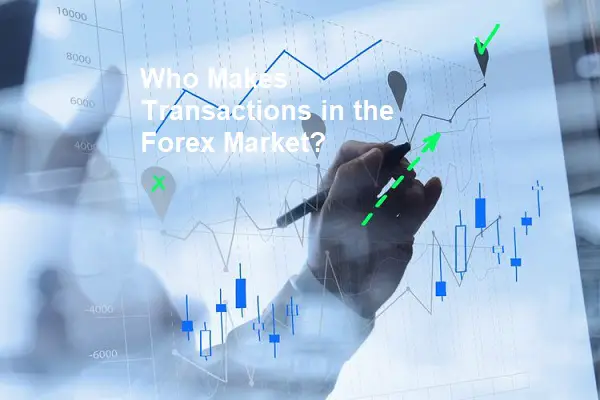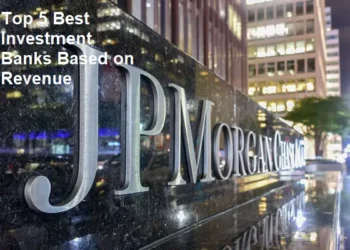Foreign Exchange (Forex) or foreign exchange (forex) has a dynamic value. Even price changes in the forex market can occur significantly in a short time. For example, when the release of economic data for a country is considered important by market participants.
Price changes that occur in the forex market are basically the work of market participants. Decisions from the majority of market participants or what is known as market sentiment will push prices in a certain direction, whether it’s up or down. Even the strength of market participants can force a central bank to give up its intervention to prevent a country’s currency from falling. In fact, the central bank is known as the most influential market player in the forex market because of the very large volume of transactions.
What are Market Participants?
Market participants are words that are similar to business people. Market participants mean people or parties involved in trading activities in a market. In short, market participants are traders or buyers and sellers.
Market participants, especially for financial markets, have an important role in influencing the dynamics of price movements. The decisions of the majority of market participants or what is known as market sentiment can push the price of an asset in a certain direction. For example, if the majority of market participants want to buy a currency, the value of that currency will strengthen. And vice versa, if the majority of market participants sell a currency. So the value of the lowest currency will weaken.
Forex Market Participants
The forex market is no different from any other financial market. The forex market is also heavily influenced by market participants. And even the forex market participants are the most among other financial markets.
Market participants in the forex market generally have two goals. First, for trading and second for exchange.
1. Traders
Forex market participants with the aim of trading are called traders. Traders in Indonesian are traders or people who buy and sell.
Traders are classified into two types:
• Institutional Traders
Institutional traders are institutions or companies that carry out transactions in the forex market to benefit from the difference between the buying price and the selling price. Institutional traders are generally banks, hedge funds, financial institutions (non-banks) and others. However, to become an institutional trader, the real size is not the organization or group, but the capital used.
Institutional traders have very large capital with large trading volumes. For this reason, transactions carried out by institutional traders greatly influence price movements in the forex market. Even market sentiment is basically formed by a collection of transactions from several institutional traders, not retail or individuals.
• Retail traders
Retail traders are people or groups who make transactions in the forex market with relatively low capital. Rite traders also make transactions to make a profit from the difference between the purchase price and the selling price. It’s just that retail traders don’t have a significant “contribution” in moving prices in the forex market or shaping forex market sentiment.
Retail traders contribute a small amount of transaction volume to the forex market. The volume is actually not very significant, because the real market movers are institutions. Even based on 2019 data, retail traders only account for around 5% of the total transaction volume on the forex market. Therefore, all actions or decisions taken by retail market players can be considered as having no effect on price movements.
2. Exchangers
An exchanger is a forex market participant who conducts currency exchange transactions for the purpose of using money as a medium of exchange in a country. The Exchanger also consists of several parties, including:
• Exporters and Importers
Exporters and importers are market participants who carry out exchanges for the benefit of trade between countries or internationally. Importers do exchanges to be able to buy goods from abroad. Meanwhile, importers exchange for payments received in foreign currency.
• Banks
Banks are financial institutions that provide various types of financial services. One of them went abroad and received transfers from abroad. For this reason, banks generally also exchange between currencies based on the interests of customers.
• International Tourists
Foreign tourists are foreign exchange market participants who exchange for the needs of using a country’s currency. The difference with other exchangers is that foreign tourists do exchanges not based on business interests but for entertainment purposes.
• Foreign investors
Foreign investors also indirectly exchange when investing in a country. For example, a foreign company invests 100 billion USD in a domestic company. Well, the value of 100 billion will definitely be converted into domestic currency for use by companies.
• Foreign workers
Foreign workers are also forex market participants who conduct exchanges. Foreign workers exchange when sending their salary in foreign currency to their families in a country. Therefore, TKI or TKW who work abroad are called foreign exchange heroes.
Conclusion
So, forex market participants generally consist of traders and exchangers. Both types of market players influence the dynamics of price changes in the market to a certain proportion. The most influential market player is the central bank, while the least influential are retail market players or individuals.
Among exchangers and traders are retail and institutional market participants. Retail exchangers for example, foreign tourists, foreign workers and others. Meanwhile, institutional exchanges include investors, banks and also exporters or importers. Meanwhile, retail traders, for example, forex traders like us today. And institutional traders such as Hedge funds or similar institutions.









